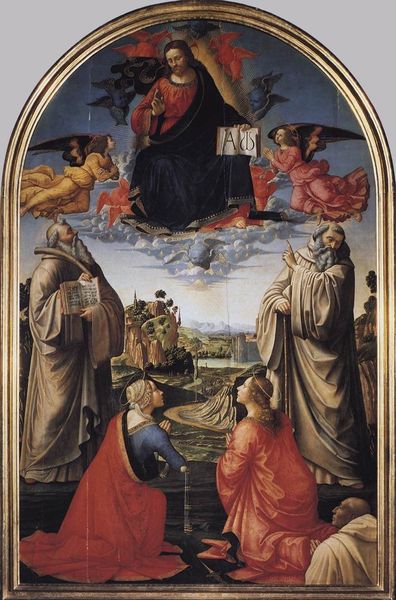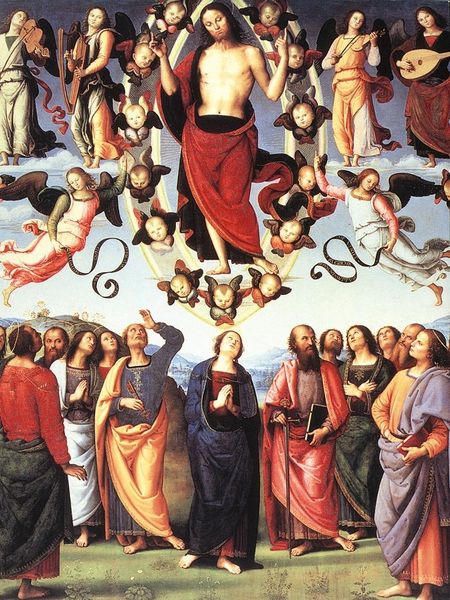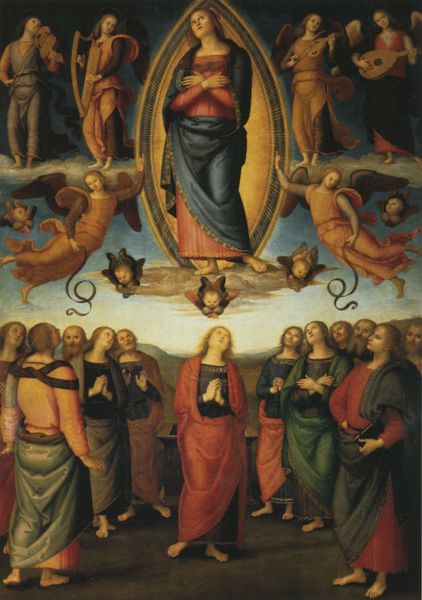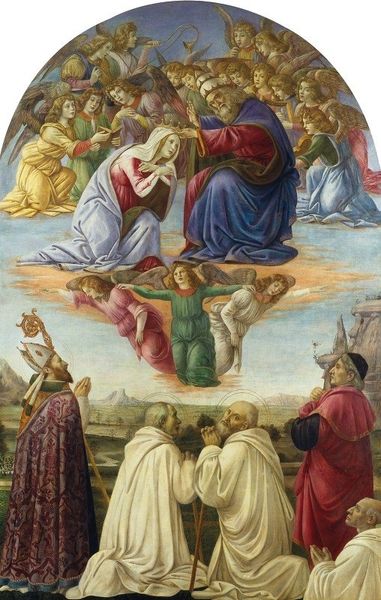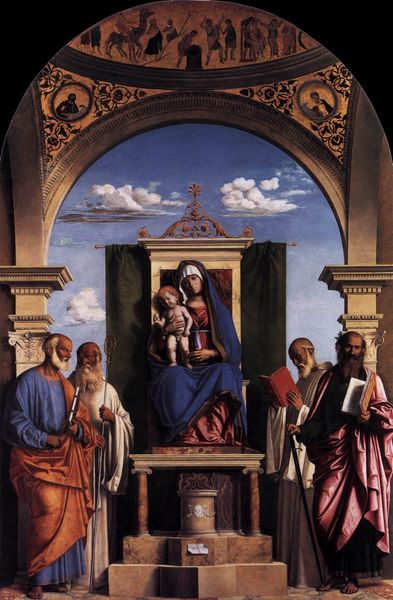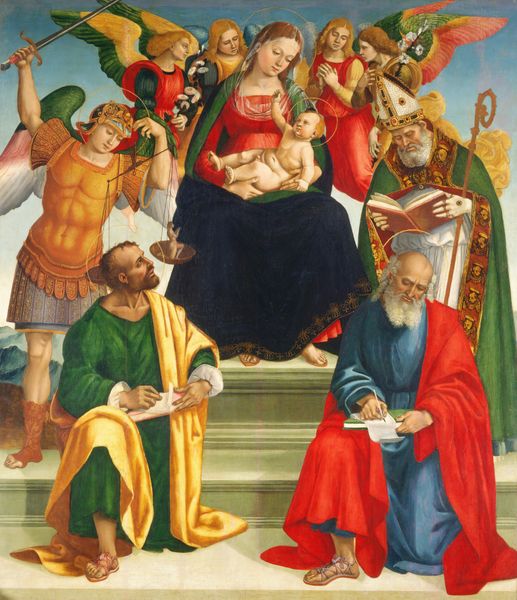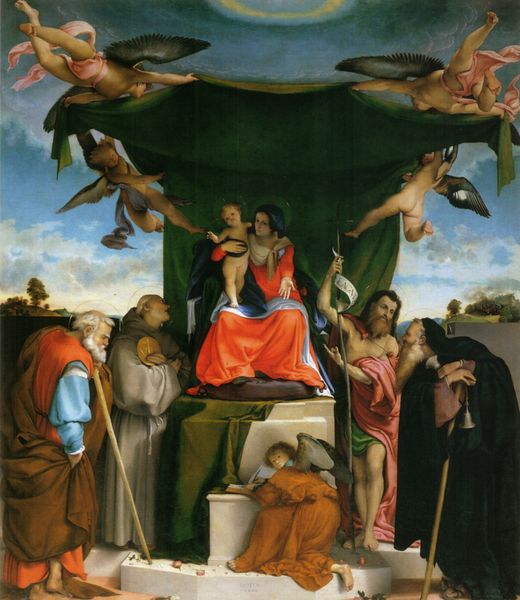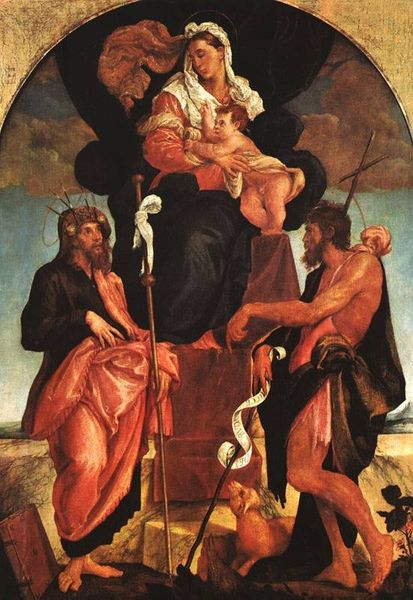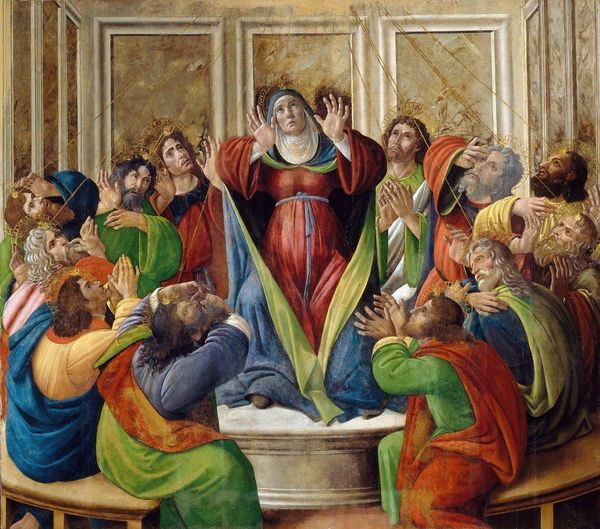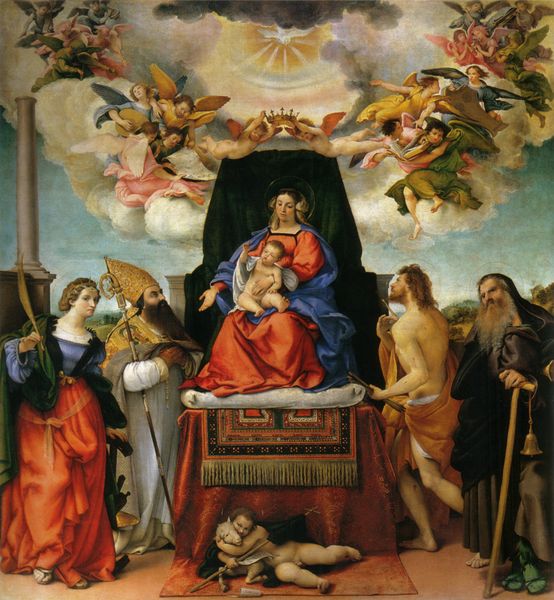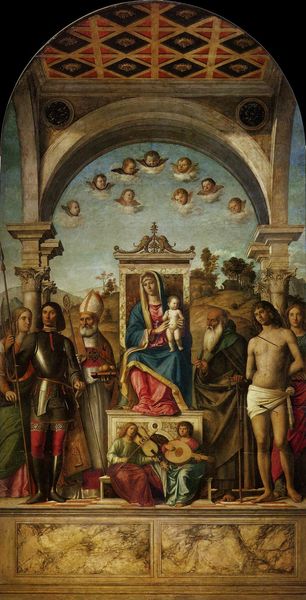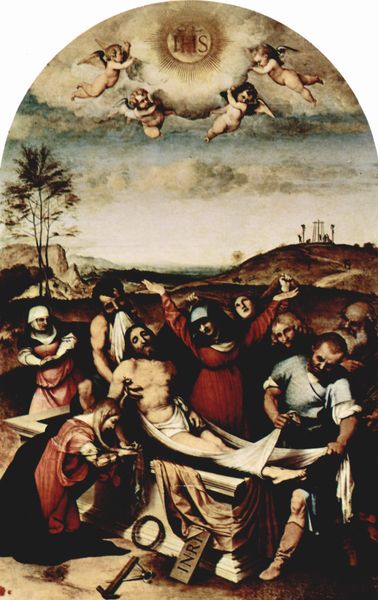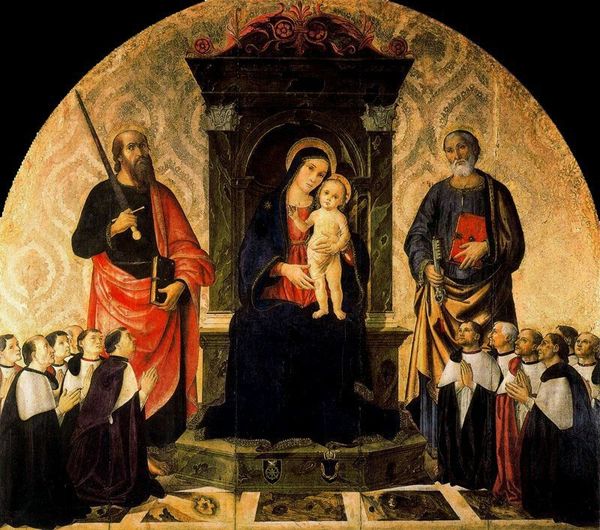
painting, oil-paint
#
portrait
#
high-renaissance
#
painting
#
oil-paint
#
figuration
#
christianity
#
history-painting
#
facial portrait
#
italian-renaissance
#
portrait art
#
christ
Dimensions: 350 x 225 cm
Copyright: Public domain
Curator: Take a look at "Virgin in Glory with Saints" by Giovanni Bellini, completed around 1515. At first glance, what grabs you? Editor: It’s that ethereal Mary, of course, seemingly suspended above everyone. She looks both imposing and gentle, if that makes sense. It gives me chills, actually. Curator: The artist employed oil paint on panel to present the virgin against a serene, detailed landscape with architectural elements, creating an immediate connection to its Venetian context. The choice of oil paint really allowed him to create such subtle, ethereal effects you mention. Editor: Absolutely. I mean, look at the landscape behind her, then those puffy cherubic clouds. Are those the early special effects? It's sort of stagey and divine at once, which I find very comforting! But also, I can't help wondering who made the actual colors. It seems laborious... Curator: Bellini, within his workshop, would have considered both the source and the social meanings of those colors; certain blues, for example, had very specific symbolic meanings tied to trade routes. This connects to how society consumed not just images but raw materials. Editor: Right. Plus, the guys down below all staring upwards – very strategic placement! The whole thing makes me want to reflect. Did Bellini also intend for this to serve not only as a painting for viewing and reflecting, but perhaps even a tool for introspection? Curator: That’s astute. Bellini would've hoped viewers could contemplate and use their material world, daily lives, or faith. How those material and spiritual concepts intertwined was as critical as each carefully mixed pigment. Editor: Thinking about Bellini and his team carefully mixing the colors like this makes me reconsider how important color making could be in the daily Venetian art and spirituality scene of the 16th century. Curator: Precisely, examining even devotional images through a lens of materials helps expose a wealth of knowledge around a single artwork’s manufacture, patronage and viewership!
Comments
No comments
Be the first to comment and join the conversation on the ultimate creative platform.
